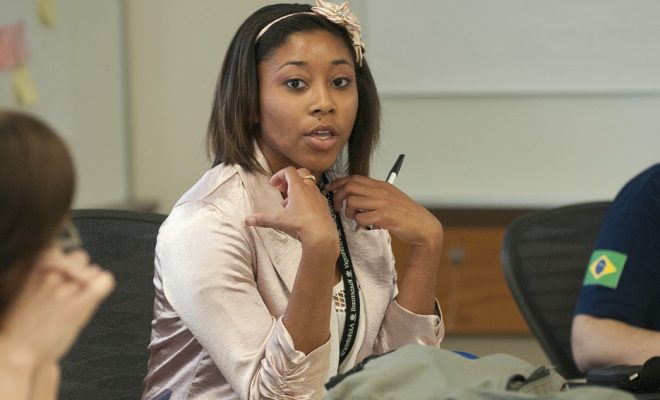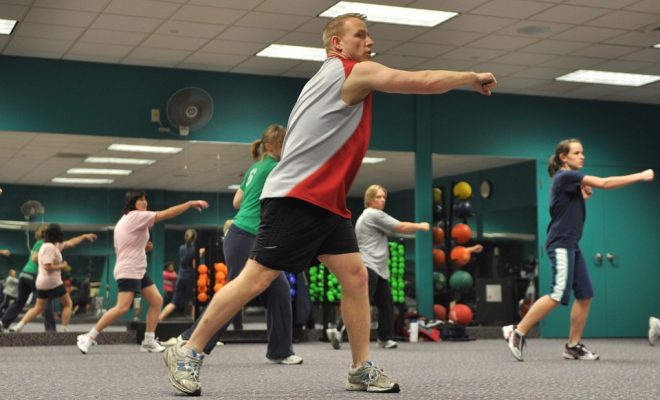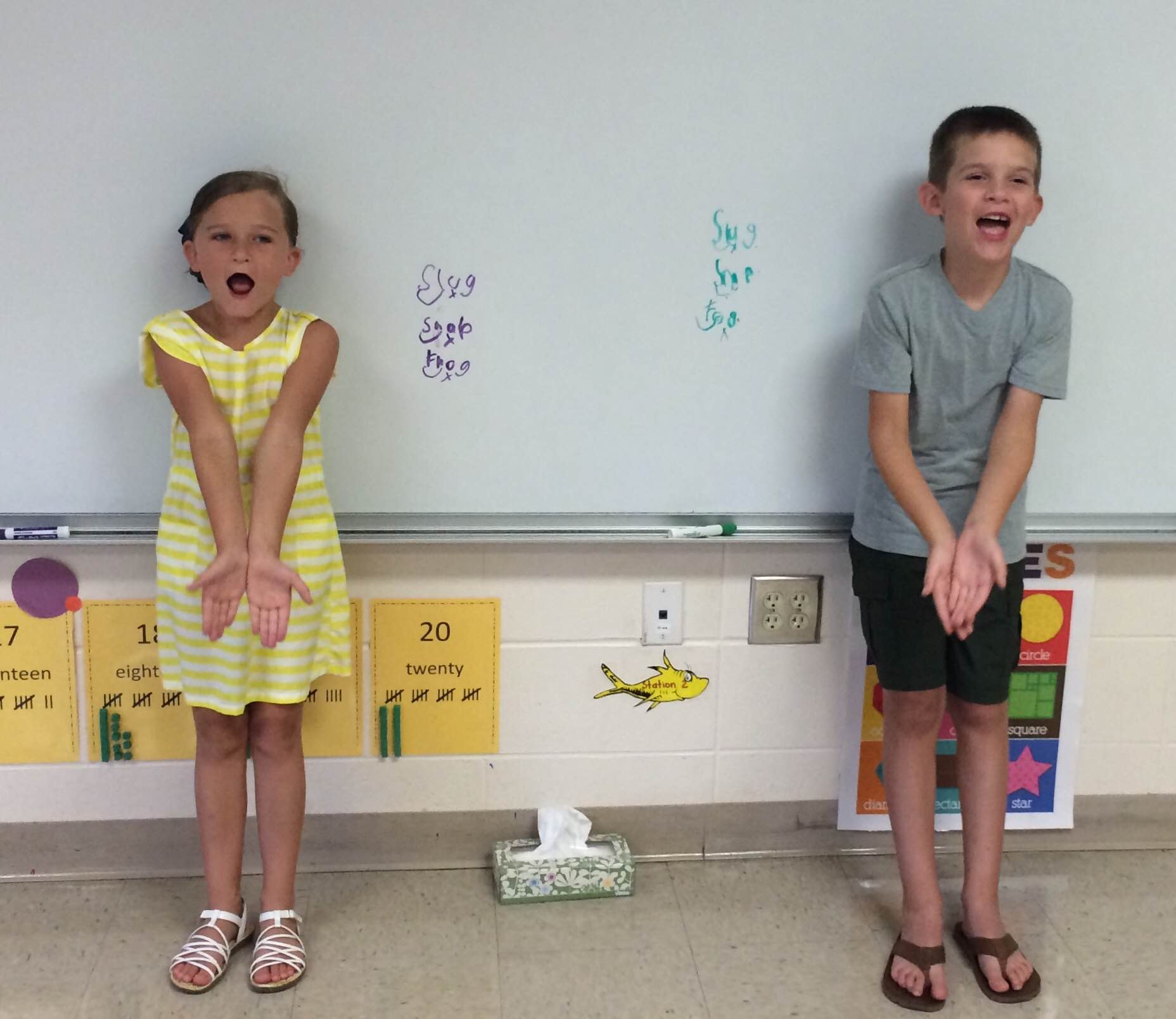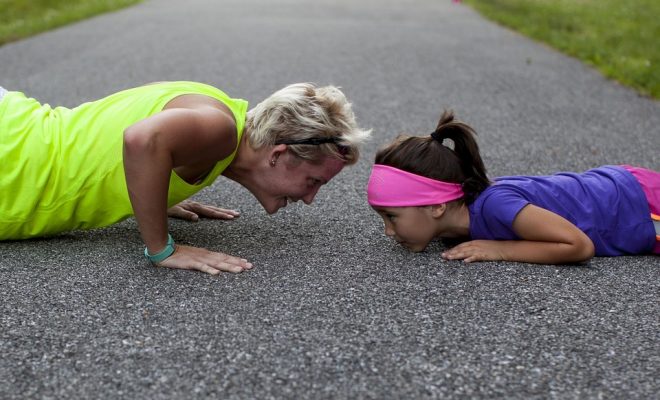Creative limits & meaningful freedom for educators

**The Edvocate is pleased to publish this guest post about creative limits as way to fuel important conversations surrounding P-20 education in America. The opinions contained within guest posts are those of the authors and do not necessarily reflect the official opinion of The Edvocate or Dr. Matthew Lynch.**
A column by Rick Osbourne
I once began a 2nd grade Physical Education class by informing students that we were going to play a unique game of kickball. It would be unique because it would have NO RULES. The kids would be FREE to do anything they wanted to do without limitations or consequences.
Their immediate reaction was a collective silence. They had puzzled looks on their faces. It was as if they were wondering if the old Coach had just gone off the deep end.
Then one hand slowly went up. “How will we know if somebody is safe or out if there are no rules?” he asked. Another student chimed in with “How will we know if somebody’s cheating, or who’s winning and who’s losing?” Another little voice added “That’s going to be confusing.”
I allowed the buzz to continue for about 30 seconds before confirming that all the kids wanted the rules to be restored in order for them to play a meaningful game of kickball. They agreed unanimously and with the help of the rules they played a successful game of kickball.
Man’s Deep Seeded Need to Understand Himself
The point here is that we human beings (individually and collectively) have a deep-seeded need to know and understand ourselves and the circumstances in which we find ourselves. We also have a deep-seeded aversion to the possibility of failing to understand ourselves, of being disorientated, lost in space, without context, meaning, direction, or purpose.
And this deep seeded need/aversion drives humanity to rectify this problem by creating and participating in activities that are understandable BECAUSE of their limitations, their rules, what they encourage and what they discourage.
In the example above, even 2nd graders knew intuitively that the lack of rules and the resulting freedom to do anything makes a game of kickball meaningless. Freedom to do anything, without consequence invites chaos, disorientation, confusion, and meaninglessness. That is to say, without a creative set of rules, regulations, limitations, and restrictions within which to play, the game of kickball, as well as the game of life, quickly deteriorates into absurdity. *
Therefore, in order for it to make sense, for it to have context and meaning, human existence requires a creative set of rules, regulations, limitations, and restrictions within which human beings can take meaningful action. With those limitations in hand, human existence gains a context, an orientation within which man’s actions, choices, and experiences have the potential to become understandable and meaningful. These creative limitations and restrictions help to give human existence purpose, direction, and meaning that is impossible without them.
Examples of Creative Limits – Time and Space
Examples of such creative limitations start with an activities temporal and spatial limits. A marathon, for example, begins with the starting gun ends when one crosses the finish line.
Furthermore, a marathon covers precisely 26 miles, 385 yards – no more and no less. A marathon (or a human life) without a beginning, an end, and spatial qualities is meaningless.
Sport
A football game begins with a kickoff and ends when the final seconds click off the game clock. And all relevant activity takes place on the field of play. Activities on the sidelines or in the stands are of no consequence to the game itself. The game also has a set of rules, a level playing field, as well as refs who are expected to judge play and enforce the rules fairly and equitably.*
Marathons and football games depend on their own unique limitations in order to have meaning. Their rules and regulations also define and distinguish these particular activities apart from all other human activities. Thus football is different from basketball, piano playing, or oil painting, each of which have their own rules and regulations that define and distinguish them.
Language
But sport is just one example of an activity that enables human activity to become meaningful. Another prominent phenomenon that features creative limitations is language which is made up of words that have definitions and phrases that have unique rules and regulations and therefore can be combined in ways that give them meaning. Human evolution has depended on men’s ability to communicate with each other and a formal language is unique to humanity.
History
Then there’s history, which serves to inform man of where he’s been and aims to offer some sense of where he is and where might be going in the future? As Hegel, among others pointed out, to know and understand any subject (including human existence) one must know its history. Absolutely everything has a history, including language and sport.
Art
Art has a history, a language of its own, and it addresses the subject of beauty whether in the form of sculpture, painting, music, or dance. Art has been part of the human experience since cavemen began painting on cave walls. This ancient art served as man’s first written form of communication, i.e. language. And with it man not only made his world more beautiful and interesting, but he told the story of where he’d been – his history.
Religion
One of the primary inspirations for artists throughout history has been mythology and religion which aim to inform man with regard to what is and what is not, with a particular emphasis on how he should conduct his life – morality, ethics, good, evil, and justice. Once again religion has its own history, its own language, and it provides creative rules and regulations (i.e. the decalogue), an orientation within which human actions can take on meaning and purpose.
Science
And finally there’s modern empirical science, a field which once again has its own unique history and language, and which aims to distinguish truth from fiction by relying on experiences that are accessible to the senses and thus provable through repeatable experimentation.
All these activities are unique to the human experience and as such they help to define and distinguish human existence apart from other life forms. In the process they also help man to know and understand himself and the circumstances in which he finds himself. All are made up of creative rules and regulations, limitations and restrictions that provide a context and an orientation within which man’s experiences are rendered meaningful and purposeful.**
Dynamic and Evolving
These activities are characterized by the fact that they’re dynamic, evolving, and alive (Hegel) as opposed to static, sterile, and dead (Plato). For example, add a 24 second clock and a 3 point play to the game of basketball and you have a different and arguably a more interesting game. Language, history, art, religion, and science are also constantly growing, evolving, and accommodating new developments and aiming for new heights.
Interactive and Creative
In a similar light, they’re interactive instead of passive. As the result they’re productive and creative (i.e. Godlike) as opposed to impotent and sterile. That is to say the interactive process creates something new whether it’s an idea, an insight, an appreciation for, or something physical such as a work of art, a scientific discovery, or a technological development.
Ends in Themselves
In the highest and best sense these activities are also creative ends in themselves as opposed to being a means to something or someone outside themselves whether it’s the church, the state, and the corporation, or money, power and fame. Done right participation in these activities serves as its own reward, its own motivation. Extrinsic rewards tend to undermine, reduce, demean, if not demolish their virtue, their value, and their meaning.
Conditions Encourage or Discourage…
Such creative endeavors flourish and thrive under the auspices of discretionary time, when man is free to think and to act creatively. In other words the cave man was not painting on cave walls when his belly was empty. When writing Macbeth Shakespeare was not wrestling with how to keep a roof over his head. And Muhammed Ali was not polishing his boxing skills under the whip of necessity. Discretionary time, not necessity, is the true mother of invention.
The Individual and the Collective
By virtue of rendering human activity (individually and collectively) meaningful and purposeful, these endeavors encourage and cultivate the individual but not at the expense of humanity. They also encourage and cultivate humanity but not at the expense of the individual. In so doing they help to define and distinguish human existence apart from other life forms. In the process they help man understand himself and the circumstances in which he finds himself.
*In a sporting contest (and life) breaking the rules in order to gain an unfair advantage (i.e. cheating) renders the game fraudulent, corrupt, and less meaningful. In order to confirm this claim one needs only to refer to the adventures of Lance Armstrong, Pete Rose, Mark McGwire, Shoeless Joe Jackson, or a myriad of other infamous examples in the annals of sport.
**Philosophical anthropologist Ernst Cassirer’s Philosophy of Symbolic Forms gives a much more detailed account of these examples.
_________________________________________
Rick Osbourne is a former physical educator and a pioneer in the field of functional childhood obesity prevention. He currently serves as President of the Pull Your Own Weight Foundation which is an Illinois based, 501c3, not for profit organization whose focus is functional childhood obesity prevention. He’s written and published three books in this field, the latest of which is entitled Beating Childhood Obesity Now: A Simple Solution for Parents and Educators. He’s the Examiner’s national childhood obesity prevention correspondent. He writes an online column for The Edvocate. And you can connect with Rick via Twitter, Linkedin, or Facebook.





